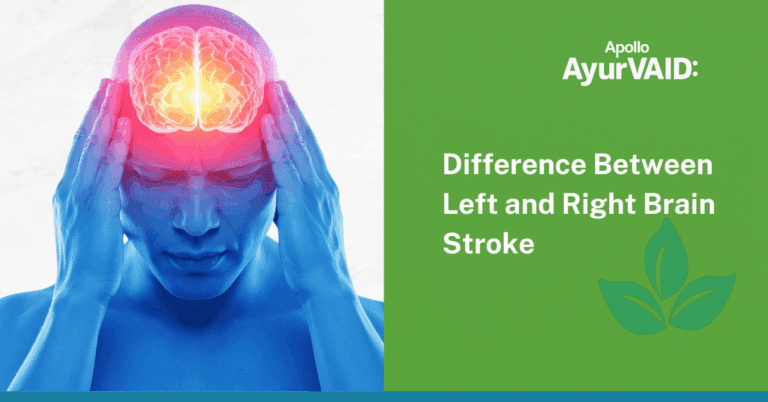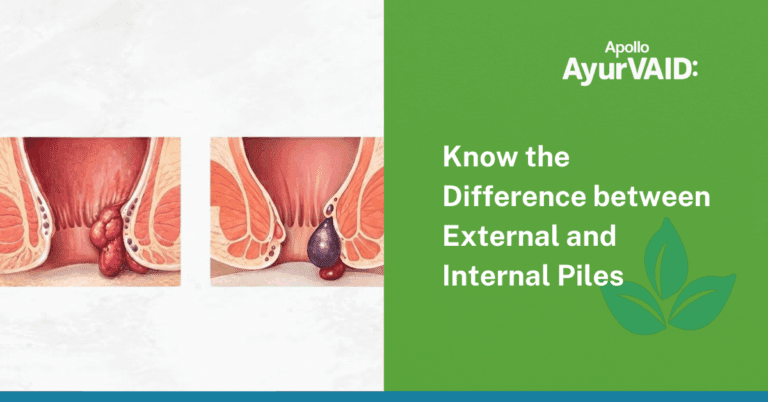
Web Stories
Step Into the Story: Explore Now
Introduction
Today, children are confronted by a large number of health challenges such as learning disability, attention deficiency etc which have become very common nowadays. Modern parents are facing unparalleled hurdles in keeping their kids healthy with developing cases of respiratory disorders and allergies, rising prevalence of developmental issues, and stress-related conditions. On Children’s Day, we look at how Ayurveda Pediatric Care can help address these modern-day health issues.
Ayurveda has a specialized branch of pediatric care called Kaumarabhritya. Unlike conventional medicine, which tends to treat children as miniatures of adults, Ayurveda views children as unique physical and psychological beings.Kaumarabhritya emphasizes that the care of a child begins even before conception (Garbhini Paricharya) and continues through various developmental stages.
Maternal health, developmental stages, and nutritional management are also dealt with in this branch. Ayurveda categorizes children into age groups (Navjaata/ Newborn, Shishu/Infant), Balaka/Childhood, Kishora/Adolescent). Kaumarabhritya/ Childcare focuses on immunity, physical and mental strength, and nutritional management. This holistic approach includes mental, emotional, and spiritual well-being. In this blog, we will talk about daily routines (Dinacharya) to seasonal care (Ritucharya), dietary wisdom, which give a complete framework for raising healthy, happy children in today’s world.

Common Childhood Ailments and Ayurveda Solutions
- Respiratory problems are one of the most common health concerns in children because of Kapha dosha dominance in Balyaavastha (childhood). Daily regimens and formulations such as Chyavanaparasha and Swarna Prashana mentioned in Ayurveda control respiratory problems, prevent future episodes and boost immunity. This holistic approach shields the child from falling sick more often
- Skin diseases: Vicharchika or eczema is a common skin problem of children that causes red, dry and itchy patches on the cheeks, ears, and the joint creases. It can be painful, especially at night. External treatments are a vital part of the management and involve the application of medicated oils and herbal pastes (lepas) to soothe the affected skin. Therapeutic procedures such as Snehapana (eating or drinking medicated ghee) and Dhara (pouring liquids on the skin) can also be incorporated for relieving and healing the skin disorder.
- Digestive issues: There are a range of symptoms that children may experience with their digestive system such as constipation, stomach pain, decreased appetite and irritability. Painful bowel movements may make some resist using the toilet. Frequent loose stools, cramping, loss of appetite, mild fever and weakness are caused by stomach infections. Ayurveda offers natural remedies for constipation and stomach infections, along with dietary guidelines of high fibre foods and fluid intake, and children may become dehydrated more quickly than adults, showing reduced urination and lethargy.
- Stress and Anxiety: Due to academic pressure and high screen time, most of the children have started complaining about stress & anxiety. Yoga and meditation, Lifestyle modifications (Dinacharya), educating parents regarding the effect of mobile and educational pressure on children, and stress-relieving herbal remedies can help children to cope with the stress in a better way.
- Sleep disorders: Neurodevelopmental disorders, behavioral problems, other comorbidities, the environment or psychological aspects and a number of medical conditions may be a cause of sleep disorders in children. It can have an impact on the physical, emotional and cognitive development of the child. Balanced lifestyle, sleep hygiene, regular routine and dietary adjustments is recommended according to Ayurveda, where proper sleep is considered as an important pillar of health. Panchakarma therapies such as shirodhara is being mentioned as a possible treatment to reduce stress and promote healthy sleep.
- With the rising incidence of Neuro developmental disorders (NDD), Ayurveda provides hope through its comprehensive approach in following conditions:
Autism Spectrum Disorder (ASD): It is a developmental condition that appears in children and affects social and communication interaction patterns and behavior. Ayurveda can help by calming the nervous system through herbs, enhanced cognitions, and for coping with sensory sensitivities with yoga and breathing. The treatment of Ayurveda reduces hyperactivity, increases focus and memory.
Cerebral Palsy (CP): Cerebral palsy is a complex condition caused by imbalance in the body’s doshas, especially Vata, that affect movement and coordination. Motor dysfunction, cognitive impairments, sensory deficits and behavioral challenges are symptoms. Panchakarma, yoga, herbal formulations and lifestyle modifications are incorporated to improve mobility and quality of life. Gradual motor skill and functional independence improvement is the focus of our holistic approach.
Attention-Deficit/Hyperactivity Disorder (ADHD): Ayurveda explains ADHD as a behavioral disorder, and its symptoms linked to imbalances in the Rajas and Tamas gunas, include inattention, hyperactivity and impulsivity. Medhya Rasayana, Panchakarma and Shamana Chikitsa to balance doshas, particularly Vata are implicated in ADHD. Dietary modifications and therapeutic procedures like shirodhara, lepa constitute a holistic approach.
Learning and intellectual disabilities: Learning disabilities are managed by Ayurveda through increasing cognitive abilities, supporting mental clarity and encouraging relaxation techniques. It also enhances cognitive function, promotes mental relaxation, and provides dietary support for intellectual disabilities.
This is a great way to create a customized plan which includes Ayurveda therapies, lifestyle modifications and dietary advice to support a child’s neurodevelopmental needs.

Preventive Measures:
Below are some of the preventive health related measures that can be incorporated in children
- Swarnaprashana, an ancient technique which enhances intelligence, helps with digestion and increases immunity.
- Following proper routine such as scheduling wake up and sleep time, eating with mindfulness, practicing abhyanga, snana etc will help prevent many diseases.
- Ritucharya involves practicing food and regime appropriate for the season to help prevent seasonal diseases in children such as cough, cold, flu.
- Including fruits and a range of pulses in the diet, encouraging healthy eating habits, and replacing packaged and processed foods with nutritious home-cooked snacks will help prevent kid falling sick more often
- Immunity boosting spices such as Turmeric, Ajwain, Jeera, black pepper are advised along with food to maintain a healthy
Ayurveda approach in Pediatric health care
- Holistic: Ayurveda takes a holistic view to child health & wellbeing, where we focus on treating the symptoms to cure it along with improving overall quality of life.
- Personalized: Dietary as well as lifestyle modification accompanied with herbal remedy(s) based on the requirement of each child enhances the outcome.
- Safe and Effective: Oral and Panchakarma therapies are safe and effective in the treatment of many pediatric diseases. In general, these treatments enhance quality of life and functional outcomes with fewer side effects than those seen with conventional medicine.
- Preventive: Ayurveda has a big emphasis on preventive care and health promotion, particularly in pediatrics.
Conclusion
On Children’s Day, we celebrate the wisdom of Ayurveda in addressing modern childhood health challenges. This ancient science provides practical, natural solutions to help parents raise healthier, happier children in today’s complex world. Utilizing the pedigrees of traditional knowledge along with forward thinking modern healthcare we can share the best of both worlds with our children – the gentle, nurturing praxis of Ayurveda and the advancements of contemporary healthcare.
REFERENCES
- Kumar, A et al. (2024). Nurturing Infants Exploring Ayurveda’s Holistic Approach to Care. International Research Journal of Ayurveda & Yoga. https://doi.org/10.48165/irjay.2024.70409
- Sahu, S et al. (2023). Critical review on Balchaturbhadra Churna: A pediatric polyherbal Ayurveda formulation. Journal of Preventive, Diagnostic and Treatment Strategies in Medicine, 2, 143 – 150. https://doi.org/10.4103/jpdtsm.jpdtsm_95_23
- Annasaheb, G, Sheshagiri, S (2024). Clinical study on the efficacy of Kalyanaka Leha Churna (Poly-herbal Ayurveda Powder) and Yapana Basti (Medicated Enema) in Language and Communication Disorders secondary to Autism Spectrum Disorder (ASD)– Study Protocol. JOURNAL OF RESEARCH IN TRADITIONAL MEDICINE. https://doi.org/10.5455/jrtm.2024-179615
- Kuldeep, R et al. (2014). RECENT ADVANCES IN Ayurveda MANAGEMENT OF CEREBRAL PALSY AFFECTED CHILDREN. International journal of research in ayurveda and pharmacy, 5, 642-647. https://doi.org/10.7897/2277-4343.056131
- Sawarkar, P et al. (2022). Contribution of ayurveda for management of ADHD (attention deficit hyperactivity disorder) International journal of health sciences. https://doi.org/10.53730/ijhs.v6ns2.5053
- Dash, R et al. (2024). ABHYANGA, NASYA AND RASA AUSHADHIS : A SILVER LINING IN THE MANAGEMENT OF ARDITA (FACIAL PARALYSIS): A CASE REPORT. INDIAN JOURNAL OF APPLIED RESEARCH. https://doi.org/10.36106/ijar/0200393
- Khatri, A N et al. (2024). A Case Study of the Management of Childhood Atopic Dermatitis Applying Ayurveda Treatment. Journal of Natural Remedies. https://doi.org/10.18311/jnr/2024/35116
- Devkhile, D S et al. (2024). Management of Ahiputana (Diper Rash) in an Infant with application of Shatdhauta Ghruta A single case study. World Journal of Advanced Research and Reviews. https://doi.org/10.30574/wjarr.2024.23.3.2926
- Yewale, D P et al. (2023). Gadget Addiction in Children and Its Management Through Ayurveda: A Review Article. International Journal of Life Science and Pharma Research. https://doi.org/10.22376/ijlpr.2023.13.5.l90-l97
- Jyothy, K et al. (2014). A critical appraisal on Swarnaprashana in children. Ayu, 35, 361 – 365. https://doi.org/10.4103/0974-8520.158978
- Gundeti, M et al. (2019). A Protocol for a Systematic Review to Study the Efficacy and Safety of Ayurveda Intervention in Children and Adolescent with Attention-deficit/Hyperactivity Disorder. Journal of Research in Ayurveda Sciences. https://doi.org/10.5005/jras-10064-0075
- Shrikrishna, R et al. (2023). PEDIATRIC PRACTICE AND RESEARCH IN AYURVEDA: THE RIGHT TIME. Journal of Research and Education in Indian Medicine. https://doi.org/10.5455/jreim.82-1680181765
- Niraj, S, Varsha, S (2019). Role of Medhya Rasayanas (Nootropic Drugs) in Developmental Disabilities of Children. International Journal of Health Sciences and Research, 9, 315-322. https://www.semanticscholar.org/paper/
28f6c1c97a59b84ba621c65b772503b5ecbac18f - Rathi, R et al. (2023). Relevance of Ayurveda Management in Duchenne Muscular Dystrophy to Augment the Quality of Life- A Pediatric Case Report. International Journal of Life Science and Pharma Research. https://doi.org/10.22376/ijlpr.2023.13.5.l322-l330






